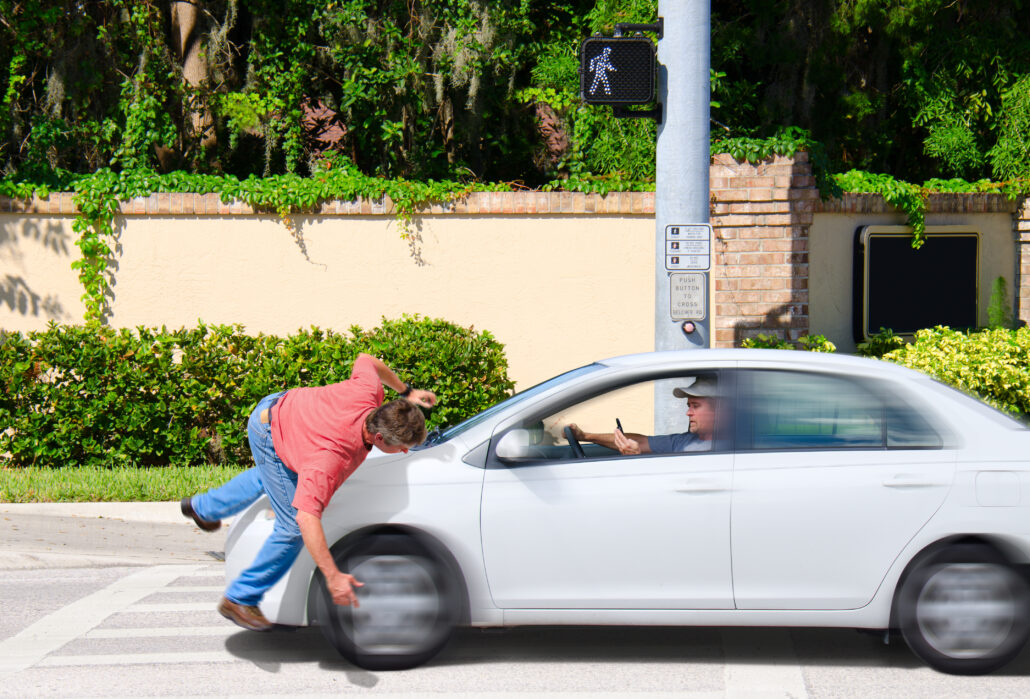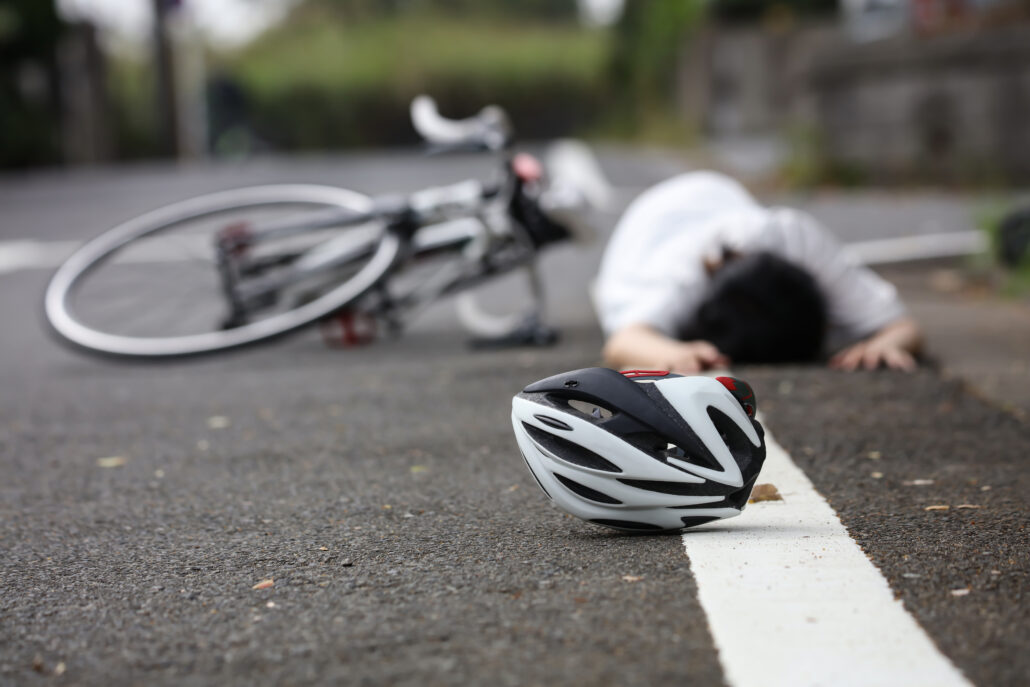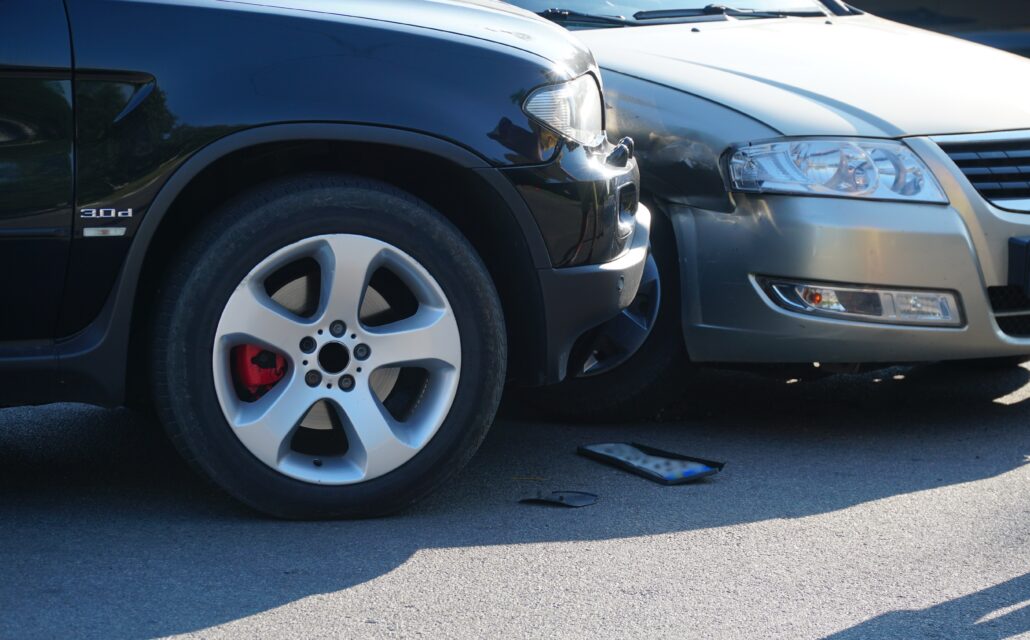A hit-and-run accident happens when you’re hit by a driver who flees the scene and does not provide contact details.
Being the victim of a hit-and-run accident can be extremely stressful. Along with dealing with the injuries you’ve sustained, you also have to figure out how to pay for the damages to your vehicle and any medical treatment you need.
So, who actually pays in these situations?
How payments are made depends on whether you live in an at-fault or no-fault insurance state. An experienced Bronx hit-and-run attorney can help you navigate the legal complexities related to hit-and-run cases.
Hit-and-Run Claims in At-Fault States

All states in the U.S. require that motorists have mandatory auto insurance; most states follow an at-fault model. The driver at fault is the person who pays for the accident. However, you face a dilemma if you can’t track down the driver.
If you’re injured by a driver you can’t locate in an at-fault state, you’ll have to rely on your insurance coverage for compensation. If you track down the driver, you may have to file a civil lawsuit to recoup damages.
Hit-and-Run Claims in No-Fault States
For victims of hit-and-runs in one of the dozen no-fault states, personal injury protection (PIP) auto insurance typically covers medical bills and other injury-related costs, including hiring household help. PIP is mandatory in no-fault states and optional coverage in most at-fault states. You can submit a PIP claim, regardless of who caused the accident.
No-Fault Policies
No-fault coverage varies from state to state and includes policies like personal injury protection (PIP) or Medical Payments (Med-Pay). Both no-fault policies protect you by paying injury-related losses and medical payments. It does not matter if you’re the at-fault party or the victim in a hit-and-run.
If you have Med-Pay as part of your policy, it should cover medical expenses related to a car accident, regardless of who was at fault. For major injuries, though, MedPay limits may not be enough, so an uninsured motorist bodily injury claim will provide greater coverage in most hit-and-run cases.
Collision Coverage
Collision coverage covers car replacements or repairs after a hit and run accident. You can’t use PIP to cover property damage. However, you can submit a claim to your insurance provider to get your vehicle replaced or repaired.
Therefore, you might get compensation by submitting a claim to your insurance company. When you file a claim against your own insurance company, it is called a “first-party” claim. You don’t have to know who hit you if you make this type of claim.
Uninsured Motorist/Underinsured Motorist Coverage
In a hit-and-run accident, uninsured or underinsured motorist coverage (UMI) pays for your medical bills, pain and suffering, and related losses. This protection is helpful, regardless of whether you live in an at-fault or no-fault state.
Your uninsured motorist property damage will pay for repairs to your vehicle. And if you suffered any injuries, your uninsured motorist bodily injury will cover associated medical treatment. Keep in mind that both of these uninsured motorist coverages are usually subject to policy limits and deductibles.
When an At-Fault Drive Is Identified
If the at-fault driver is identified later, their liability insurance will typically pay for damages. The police will do their best to locate the driver using any identifying information from witnesses or debris left behind at the scene.
If found, the driver's insurance company will pay for repairs to your car and any medical expenses related to injuries from the crash up to the driver's policy limits. If you’re having trouble getting compensation, you may have to file a personal injury lawsuit.
When the At-Fault Driver Isn’t Identified

If no one can ever identify the at-fault driver, again, you may have to depend on your own auto insurance policy to cover repairs and medical costs. Again, most standard policies include uninsured motorist property damage and uninsured motorist bodily injury coverage for exactly this type of situation.
As a last resort, you may be covered by your health insurance or may have to pay out-of-pocket if no auto coverage applies. However, this means you will also bear the full brunt of expenses from an accident that wasn't your fault. That's why uninsured motorist coverage is especially important in helping hit-and-run victims recoup damages.
Steps to Take After a Hit-and-Run: A Quick Review and Rundown
Below are the recommended steps to take if you discover someone has hit your car in a hit-and-run accident. Make sure you use the steps below as a checklist if you’ve already been hit and are wondering what actions to take.
1. Inspect the damage and document it. Take photos and write down details of the damage caused, where it is on your vehicle, and any trace evidence left behind, like paint scrapes, loose auto parts, or debris. This evidence will be helpful if the other driver is eventually identified.
2. File a police report. Even if you don’t have details about the driver at fault, it is important to report the incident to the police. Witnesses or other evidence may help track down the other party at a later date. Give the police as much detail as possible. They will write a report covering all the details - who, what, when, where, why, and how.
3. Receive medical care - get a health check if you were hit while in your car. Even if you’re feeling fine, see a doctor. Injuries like whiplash can crop up unexpectedly.
4. Report the accident to your insurance company. Provide all the documentation and evidence you have gathered to date so that a claims process can start. Cooperate with your insurer's own investigation efforts as well.
5. Get estimates for repairs. Take your car to an auto body shop for a written estimate of the damage. Save copies of each estimate to submit to your insurance company. Do not have any repairs performed without your insurance company’s approval.
5. Ask about security footage if you were hit while parked. Check with nearby businesses or residences to ask if their security cameras captured footage that may have recorded the other vehicle hitting your car. Obtain copies to support the claims investigation.
6. Follow up frequently with your insurance adjuster and the police department leading the case. Inquire about the status of identifying the at-fault driver and determining fault so that the party responsible for costs can eventually be held liable.
Document the accident thoroughly while the evidence is still available at the scene. Also, pursue every lead possible in identifying the other driver through witness accounts and security footage.
7. Retain legal help. Talking to a hit-and-run attorney can make any of the above tasks easier. They can collect the required evidence and give you a better idea of your rights to file a compensation claim.
Common Hit-and-Run Injuries
Some of the most common injuries suffered when a hit-and-run driver strikes victims include the following:
Head and Brain Injuries
Victims of hit-and-run accidents often suffer traumatic brain injuries (TBIs), including concussions or other serious forms of injuries like bleeding, swelling, or skull fractures.
Broken Bones
The sudden, forceful impact of a collision often results in broken bones, especially in the limbs and hips, as the body gets flung by the motion. Broken pelvises, ribs, legs, and arms are frequent.
Back and Neck Injuries
The neck and spinal cord area is subject to herniated discs, pinched nerves, spinal misalignment, and even paralysis when exposed to the rough jolt of a hit-and-run crash. Vertebrae fractures are also possible.
Internal Organ Damage
Internal abdominal organs and connective tissues can get lacerated, ruptured, or severely bruised in hit-and-run crashes, resulting in extensive internal bleeding and organ failure.
Road Rash
If a victim slides across the pavement after impact, extreme abrasions called road rash can open up the skin on the arms, legs, hands, knees, and feet and become infected. Motorcyclists are the most susceptible to these injuries.
Psychological Harm
Post-traumatic stress disorder (PTSD), anxiety, sleeplessness, and other emotional/psychological issues often happen after the sudden terror of a hit-and-run.
The specific bodily injuries sustained depend on the speed, angles, and size of the vehicles involved or whether the victim was sent airborne.
Also, the force of a sudden impact always puts hit-and-run victims at risk for lasting physical and emotional harm. A proper medical diagnosis, treatment, and therapy are critical for coping in the crash aftermath.
Types of Hit-and-Run Incidents

There are several different types of hit-and-run accidents:
Parking Lot Hit-and-Run
This hit-and-run happens when another driver hits your parked and unattended car in a parking lot or on the street, causing damage, but leaves no note or way to identify them before driving away. This leaves you stuck paying for repairs.
Single-Vehicle Crash
In this case, the at-fault driver hits your moving vehicle but does not stop afterward. They flee the scene rather than exchange insurance information. You are left to deal with the expenses related to the crash.
Multi-Vehicle Crash
The most serious hit-and-runs involve a drunk or reckless driver slamming into multiple vehicles at once - injuring people in several cars. The at-fault driver continues driving in an attempt to escape, often causing additional accidents down the road before they are either caught or escape.
Sideswipe
A sideswipe accident happens when two vehicles traveling in parallel lanes scrape against or clip each other, spinning out in some cases. The guilty party drives off without stopping or providing insurance information although they damaged your vehicle.
Bicycle/Pedestrian Hit-and-Run
Tragically, hit-and-run collisions also frequently involve vulnerable road users like pedestrians, joggers, cyclists, and motorcyclists. The startled motorist leaves the scene instead of rendering aid or calling 911.
In each of the above scenarios, the irresponsible driver leaves the crash victims stranded to deal with vehicle repairs, medical costs, police investigations, and insurance claims. This makes achieving accountability very difficult for the innocent injured parties.
Staged Accidents
Criminals in these staged accidents hit a driver to get paid by the driver’s insurance company. They use various techniques to make the motorist think that they are the guilty party. So, in a sense, you might classify these accidents as a “hit-and-run” of a different sort.
Right Turn Drive Down
One example of a staged accident or staged accident fraud is a right turn drive down. In this incident, the victim pulls up to a crossroad, preparing to make a right turn, when another auto runs into the back left side of their vehicle.
The driver of the crash car reports that you pulled into traffic when things weren’t clear, thereby claiming damages. A claim is filed against your insurance company, and unless you suspect otherwise, the criminal cashes in on the crash.
Damages in Hit-and-Run Accidents
When hit by a hit-and-run driver, victims face physical injuries, financial stresses, and disrupted lives.
Common damages sought through personal injury lawsuits include:
Medical Expenses
Medical costs include immediate and ongoing expenses related to hospital treatment, ambulances, surgery, medications, assistive devices, physical/occupational therapy, or counseling. Lifetime costs are claimed for permanent conditions.
Lost Income
Personal injury victims can claim lost income if injuries prevent them from working for a period during recovery. Future earning capacity may be part of a claim as well.
Loss of Consortium or Companionship
Spouses have a claim when injuries impair their partner's ability to participate in family or social relationships.
Pain and Suffering
Victims experience physical pain but also emotional suffering from post-traumatic stress, anxiety, fear, or depression following a hit-and-run accident. Monetary compensation aims to offset these intangible impacts.
Property Damage
Repair or replacement costs for any vehicles or personal property damaged in the hit-and-run accidents make up these damages.
Why It’s Best to Work with a Car Accident Attorney
An experienced hit-and-run accident attorney can fight to recover compensation through several avenues:
Get Help with Identifying the At-Fault Party
An attorney and their team will use police reports, debris evidence, witness statements, and technology, like store security footage, to exhaustively investigate leads to help identify the at-fault driver and pursue the liability claim.
Have the Legal Support You Need When Demanding a Settlement
Once the hit-and-run driver is located, an attorney can directly demand a settlement from their insurance company to cover your financial and personal damages. They’ll support the letter with crime scene evidence and related medical documentation.
Make Sure You Do Everything Right If You’re Filing a Lawsuit
If insurers do not offer a fair settlement, an attorney can take legal action by filing a personal injury lawsuit against the at-fault driver seeking court-ordered damages for your losses.
Get the Money You Need When Claiming Uninsured Losses
Even if the perpetrator stays unidentified, an attorney can claim eligible uninsured motorist policy benefits from your own insurer for injuries, lost income, and vehicle repairs.
Receive Legal Support When Negotiating With Insurers
Lawyers are experienced negotiators who can effectively advance your claim to maximize settlement offers from insurers for full and fair compensation.

Contact a Hit-and-Run Lawyer Today
The complex legal and investigative work involved in hit-and-run claims requires the determination and know-how that an attorney provides. With an attorney fighting for your right to compensation, you’ll have the legal and financial support to move past crash losses and realize recovery. Contact a hit-and-run attorney to learn more about your rights today.



